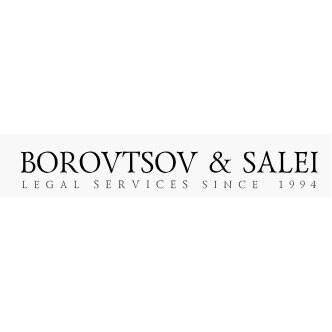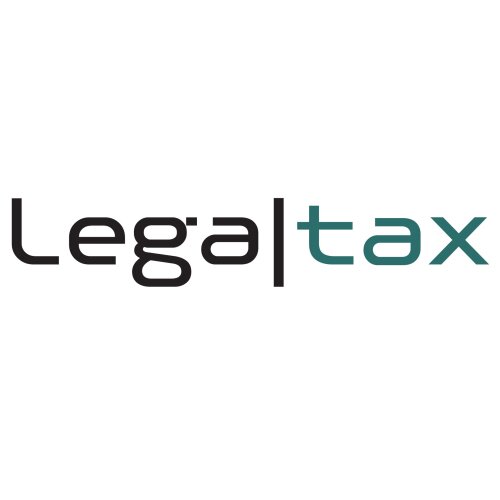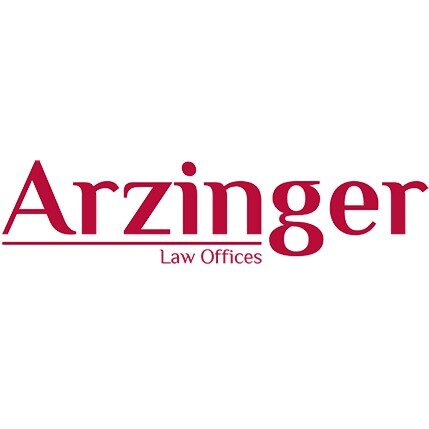Best Energy, Environment & ESG Lawyers in Belarus
Share your needs with us, get contacted by law firms.
Free. Takes 2 min.
Or refine your search by selecting a city:
List of the best lawyers in Belarus
About Energy, Environment & ESG Law in Belarus
Energy, Environment, and ESG (Environmental, Social, and Governance) law covers the complex legal frameworks governing natural resources, energy production and consumption, environmental protection, and the responsibilities of businesses regarding sustainable practices in Belarus. The nation’s commitment to balancing industrial development and environmental concerns has placed increasing importance on compliance with both national and international environmental and energy standards. ESG is also growing in relevance as businesses and investors are paying more attention to sustainable development, ethical governance, and social responsibility.
Why You May Need a Lawyer
You may require the guidance of a legal expert in Energy, Environment, and ESG law in Belarus for a variety of reasons. Common situations include:
- Obtaining permits and licenses for energy projects or waste management facilities
- Navigating legal requirements for environmental impact assessments
- Ensuring compliance with environmental regulations for businesses or construction projects
- Resolving disputes related to land use, pollution, or natural resource management
- Responding to government inspections, fines, or enforcement actions
- Implementing ESG policies and practices within an organization
- Participating in renewable energy initiatives or seeking investment opportunities
- Understanding cross-border environmental responsibilities and international agreements
Legal advice is crucial in these instances to avoid legal pitfalls, ensure regulatory compliance, and to protect your interests, whether you are an individual, a business, or a public organization.
Local Laws Overview
The Republic of Belarus has developed a comprehensive legal framework to regulate energy use, environmental protection, and sustainable practices:
- Energy Law: Belarus sets strict rules for the production, distribution, and consumption of energy. This includes licensing for energy producers, state regulation of electricity tariffs, and encouragement of energy efficiency initiatives. The development of renewable energy is guided by national programs offering limited incentives and quotas.
- Environment Protection Law: Environmental protection is governed by the Law on Environmental Protection and related regulations. Rules address air and water quality, safe waste handling, land use, biodiversity protection, and environmental monitoring. Environmental impact assessment (EIA) is mandatory for most major projects, and businesses must implement measures to prevent and minimize pollution.
- ESG Regulations: While Belarus does not have dedicated ESG legislation, elements are covered in corporate, labor, and environmental laws. Companies are increasingly expected to disclose environmental performance, abate harmful processes, and demonstrate corporate social responsibility, especially when seeking international investment or entering global markets.
- International Commitments: Belarus is a party to various multilateral environmental agreements, such as the Paris Climate Accord, and adheres to select international reporting and environmental standards as part of its obligations.
Frequently Asked Questions
What is required for an energy project in Belarus from a legal standpoint?
Most energy projects require licenses, permits, and an environmental impact assessment before construction or operation. You must comply with safety, efficiency, and ecological standards set by both national and local authorities.
How are environmental impact assessments conducted?
Environmental impact assessments are carried out according to procedures established by law. The process includes submitting documents, public consultations in certain cases, and official review before approval or project denial.
Do businesses have to report their environmental performance?
Yes, businesses in regulated sectors must regularly submit reports on emissions, waste, water and energy use, and ecological protection measures to government agencies.
Are there incentives for renewable energy investments?
Belarus offers limited incentives for renewable energy, such as quotas and slightly higher tariffs for green energy. However, the sector is tightly regulated and subject to approval by relevant authorities.
What happens if a company violates environmental regulations?
Violations can result in administrative fines, suspension of activities, or even criminal liability for serious offenses. Authorities may also require cleanup, corrective action, or compensation for damages.
Is ESG reporting mandatory in Belarus?
There is no unified, mandatory ESG reporting framework, but elements of ESG reporting may be required through environmental, labor, and corporate disclosure laws, especially for larger or state-affiliated enterprises.
How does Belarus oversee pollution and emissions?
The government monitors pollution through a system of permits, regular inspections, and obligatory reporting by businesses. Non-compliance can lead to penalties and enforcement actions.
Can foreign investors participate in Belarus’s energy sector?
Foreign investment is allowed, but is subject to a number of regulations, state oversight, and mandatory approvals, especially in strategic sectors like energy. Investors must meet the same environmental and ESG obligations as domestic entities.
Are there restrictions on land use for energy or industrial projects?
Yes, land use is closely regulated. Projects must conform to zoning rules and environmental restrictions to prevent ecological damage and protect residential areas.
What role do non-governmental organizations (NGOs) play?
NGOs contribute to public oversight, raise awareness, and can participate in public hearings on major projects, but their influence is moderate and they operate within strict regulatory boundaries.
Additional Resources
If you are seeking detailed information or assistance regarding Energy, Environment, or ESG matters in Belarus, the following resources may be useful:
- Ministry of Natural Resources and Environmental Protection of the Republic of Belarus - main governmental body overseeing environmental and natural resource management
- Ministry of Energy of the Republic of Belarus - responsible for policy and regulation in the energy sector
- Republican Center for State Environmental Expertise - conducts environmental impact assessments and reviews
- Belarusian Chamber of Commerce and Industry - provides information and support for business projects, including compliance with environmental and social standards
- Local and international law firms specializing in energy, environment, and ESG compliance
- Academic and research institutions, such as the Belarusian State University, with expertise in environmental law and policy
Next Steps
If you need legal assistance regarding Energy, Environment, or ESG matters in Belarus, consider the following steps:
- Define your issue clearly - whether it relates to permits, compliance, disputes, or investment
- Gather all relevant documents and facts pertaining to your situation
- Consult with a qualified legal expert specializing in energy, environmental, or ESG law
- Prepare questions and objectives before your meeting for a more productive consultation
- Follow up on any recommended actions promptly to ensure compliance and reduce risk
Seeking legal advice early can help prevent costly mistakes, minimize risks, and ensure your project or business complies fully with Belarusian laws and international expectations in the field of Energy, Environment, and ESG.
Lawzana helps you find the best lawyers and law firms in Belarus through a curated and pre-screened list of qualified legal professionals. Our platform offers rankings and detailed profiles of attorneys and law firms, allowing you to compare based on practice areas, including Energy, Environment & ESG, experience, and client feedback.
Each profile includes a description of the firm's areas of practice, client reviews, team members and partners, year of establishment, spoken languages, office locations, contact information, social media presence, and any published articles or resources. Most firms on our platform speak English and are experienced in both local and international legal matters.
Get a quote from top-rated law firms in Belarus — quickly, securely, and without unnecessary hassle.
Disclaimer:
The information provided on this page is for general informational purposes only and does not constitute legal advice. While we strive to ensure the accuracy and relevance of the content, legal information may change over time, and interpretations of the law can vary. You should always consult with a qualified legal professional for advice specific to your situation.
We disclaim all liability for actions taken or not taken based on the content of this page. If you believe any information is incorrect or outdated, please contact us, and we will review and update it where appropriate.
Browse energy, environment & esg law firms by service in Belarus
Belarus Attorneys in related practice areas.
Browse energy, environment & esg law firms by city in Belarus
Refine your search by selecting a city.















